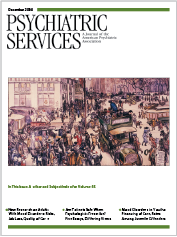This is a novel about the meaning and impact of family, and about becoming an adult. In its exploration of both of these ideas, it is also a striking portrait of inner life juxtaposed with others' interpretations of behavior. It is a gentle novel that has great compassion for people struggling with their circumstances and choices.
The novel begins with a series of intriguing vignettes—a young boy living with his mother and grandfather is attacked by their Doberman; a slightly adrift ten-year-old boy hangs out with his married teenaged cousin and his friends at a trailer park; a grandmother realizes that her young grandson has likely left her yard with an unknown adult; and a pregnant teenager with a very busy mind sits in a home for unwed mothers. These vignettes continue to unfold across separate decades, but by the end of the novel they fold into one another. The stories take place in the Midwest, largely in small towns, at a pace that is comforting.
Although the author focuses primarily on the first two boys, each of the characters is interesting and genuine. Most are clearly troubled and searching for ways to deal with emotional pain. Depression and substance abuse flow throughout the novel. Struggles to understand what it means to be a mother, a father, a brother, or a grandparent, the complexities of these relationships, and the issues raised by adoption permeate the pages. The inner ruminations are real and burning. Although readers will likely feel empathy for each of these characters, they will also understand why others react to them as they do.
What I found most compelling in these stories was the series of choices each character faced as he or she traversed from adolescence to adulthood. It is these choices that drive the stories. While choices during childhood are also depicted, and the author treats children with dignity, it is the choices in adolescence and young adulthood that send them swirling into uncharted and risky waters. To have or not to have the baby, to keep the baby or to give it up for adoption, to seek out biological connectedness or to let it go, to confront the realities of paternal responsibility or to delude oneself into complacency, to reveal one's true self or to portray a more idealized self—all these are choices that young people commonly face in the transition to adulthood. Chaon has portrayed these choices elegantly, and with kindness, yielding a compelling read for those who enjoy the complexity of people and their relations with one another.

